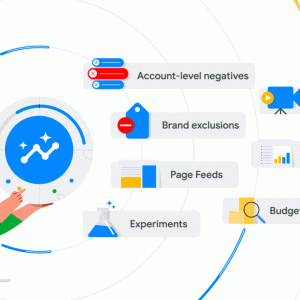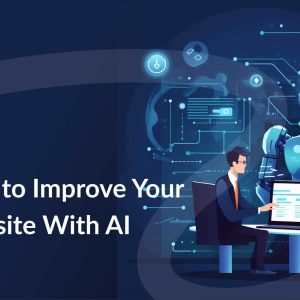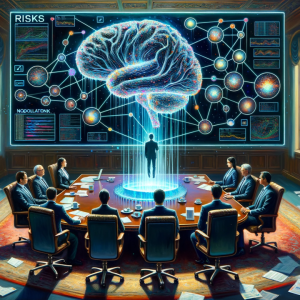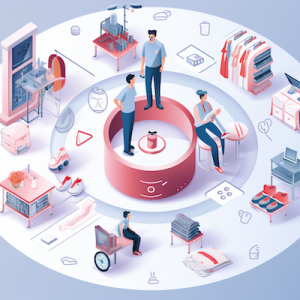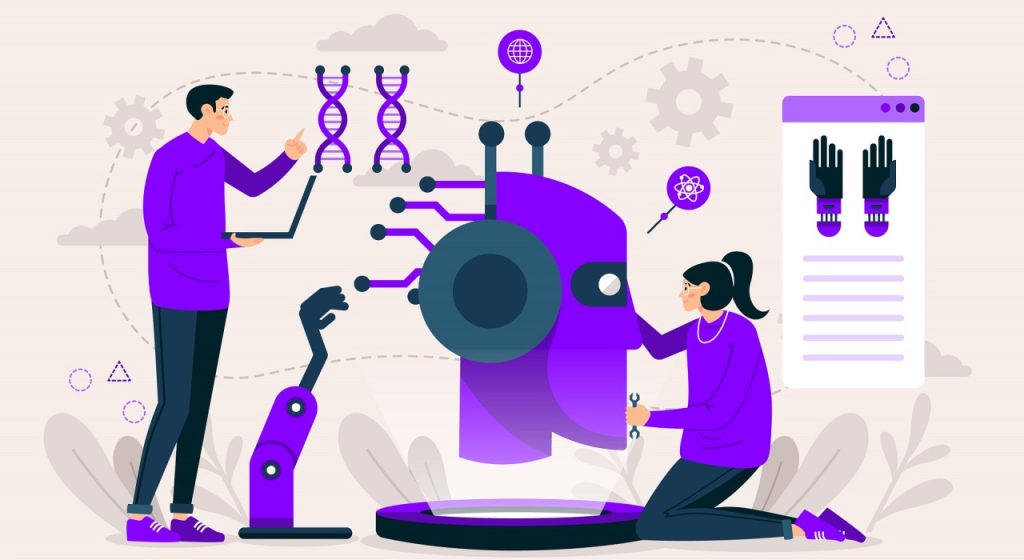
Artificial Intelligence (AI) has emerged as a transformative technology, revolutionizing various industries and reshaping the way we work. As AI continues to advance at a rapid pace, it is crucial for professionals to adapt and embrace AI skills to stay relevant in the ever-evolving job market. In this article, we will explore the importance of AI skills in the workplace, the benefits of acquiring AI expertise, and the steps individuals can take to develop and leverage AI skills effectively. 1. The Growing Significance of AI Skills: 1.1 Introduction to AI: Provide a brief overview of AI, its applications, and its impact on various industries, highlighting its potential to optimize processes, improve decision-making, and drive innovation. 1.2 The Role of AI in the Future of Work: Discuss how AI is reshaping the job market and the increasing demand for professionals with AI skills across diverse sectors. 2. Benefits of Acquiring AI Skills: 2.1 Increased Employability: Explore how AI skills can enhance career prospects and open up new job opportunities in AI-related roles, such as data scientists, machine learning engineers, and AI strategists. 2.2 Competitive Advantage: Highlight how possessing AI skills can set individuals apart from their peers and make them valuable assets to companies seeking to leverage AI technologies. 2.3 Adaptability and Future-Proofing: Discuss how acquiring AI skills equips individuals with the ability to navigate technological advancements and adapt to changing job requirements in the AI-driven era. 3. Developing AI Skills: 3.1 Understanding AI Concepts and Technologies: Provide an overview of fundamental AI concepts, such as machine learning, deep learning, and natural language processing, and explain their applications in real-world scenarios. 3.2 Education and Training: Discuss the various educational resources, online courses, and training programs available for individuals to develop AI skills, including reputable platforms and institutions offering AI-related courses. 3.3 Hands-on Experience: Emphasize the importance of practical experience in AI, such as participating in AI-related projects, building AI models, and collaborating with AI experts to gain a deeper understanding of AI applications. 3.4 Continuous Learning and Keeping Up with AI Trends: Encourage individuals to stay updated with the latest advancements in AI, follow industry thought leaders, and engage in continuous learning to remain competitive in the rapidly evolving field. 4. Leveraging AI Skills in the Workplace: 4.1 Identifying AI Opportunities: Discuss how individuals can identify AI-related opportunities within their current roles or industries, such as automating repetitive tasks, improving data analysis, or developing AI-driven solutions. 4.2 Collaborating with AI Teams: Highlight the importance of collaborating with AI experts and cross-functional teams to leverage AI skills effectively, fostering a culture of innovation and driving AI adoption within organizations. 4.3 Ethical Considerations: Address the ethical implications of AI and the need for individuals with AI skills to be mindful of privacy, bias, and fairness when developing and deploying AI solutions. 5. AI Skills in Different Industries: 5.1 Healthcare: Explore how AI skills are transforming healthcare, from personalized medicine and diagnosis to drug discovery and telemedicine. 5.2 Marketing and Advertising: Discuss the impact of AI skills on digital marketing, customer segmentation, personalized advertising, and predictive analytics. 5.3 Finance and Banking: Highlight the role of AI skills in fraud detection, algorithmic trading, risk assessment, and customer service automation. 5.4 Manufacturing and Supply Chain: Examine how AI skills can optimize production processes, predictive maintenance, inventory management, and supply chain optimization. 6. The Future of AI Skills: 6.1 AI Augmentation: Discuss the concept of AI augmenting human capabilities rather than replacing jobs, emphasizing the importance of upskilling to collaborate effectively with AI systems. 6.2 AI and Creativity: Explore the intersection of AI and creative industries, such as art, music, and content creation, and the potential for AI to enhance human creativity. As AI continues to shape the future of work, individuals who embrace AI skills will be well-positioned to thrive in the evolving job market. By acquiring and developing AI expertise, professionals can enhance their employability, gain a competitive advantage, and contribute to driving innovation in their respective industries. Embracing AI skills is not only crucial for personal career growth but also for shaping a future where humans and AI systems work together to create a more efficient, productive, and innovative world.

